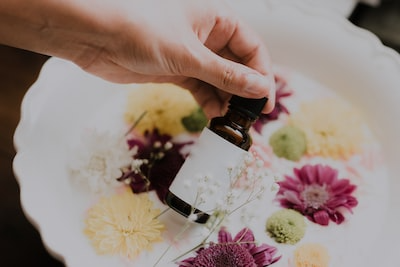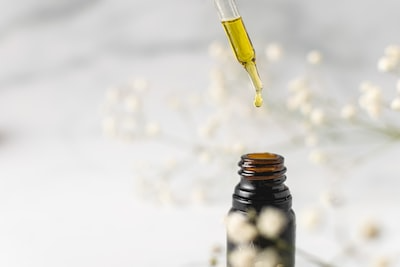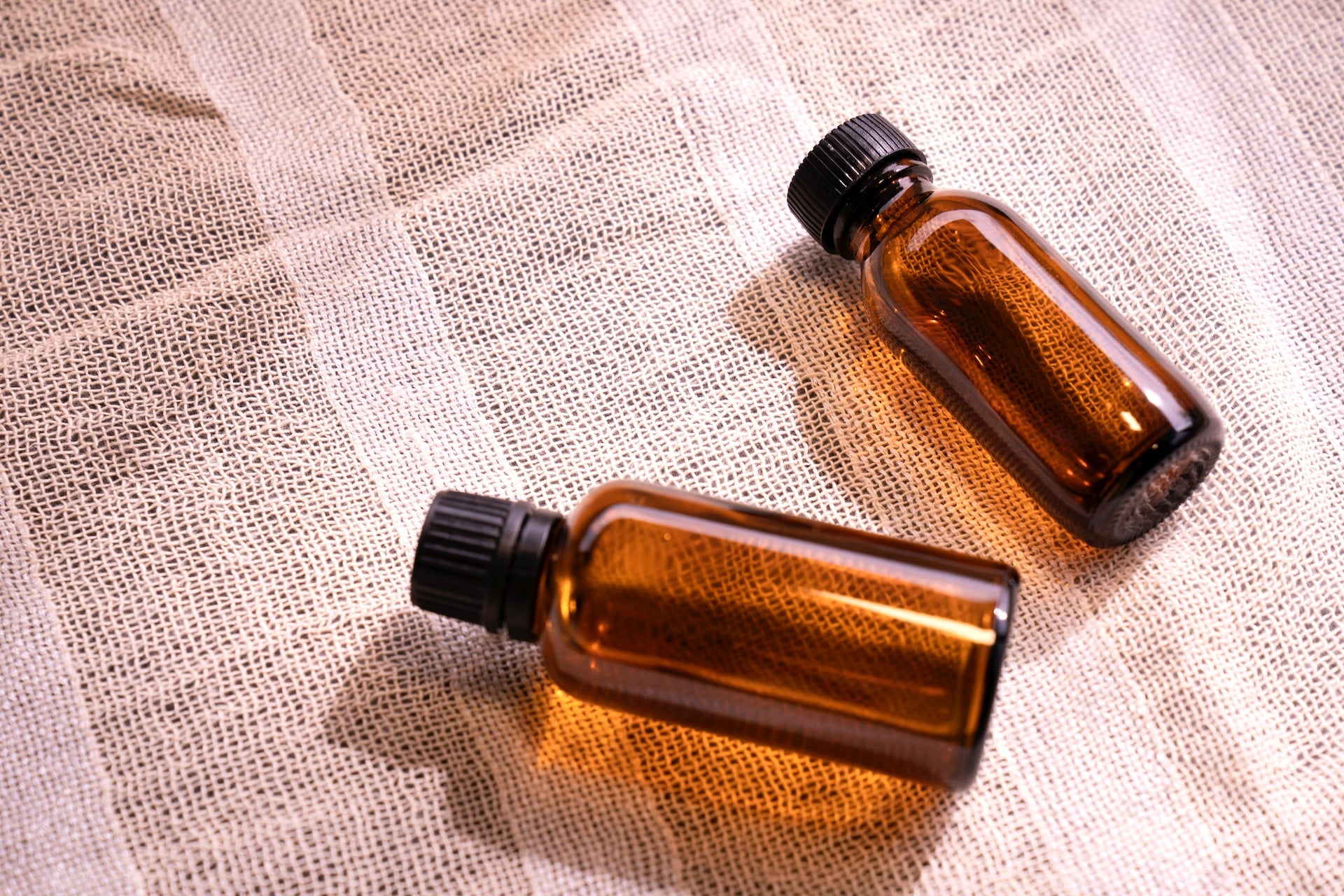
Citrus Oil: Discovering Its Aroma, Flavours and Benefits
Most people have experienced how the simple whiff of a citrus oil can instantly lift your mood, and it's no secret that this zest scent packs a powerful punch. Their bright, sunny aromas can invigorate and refresh you in an instant.
Bursting with benefits, citrus oils aren't just about their intoxicating scents, these little powerhouses have more to offer than meets the eye...or nose!
Dive into this guide to explore the vibrant world of citrus oils where we discuss unique varieties like lemon myrtle, applications in aromatherapy for uplifting moods, tantalising culinary uses enhancing dishes like roast veggies and seafood; to its roles in personal care products promising an enhanced home spa experience.

Citrus oil - and why Lemon Myrtle is the ultimate citrus flavour and scent.
Lemon Myrtle oil owes its incredibly fresh and zesty scent to its high citral content. Citral is a naturally occurring compound found in certain citrus plants, and it's responsible for that familiar, refreshing citrus aroma we all know and love. In the case of Lemon Myrtle, the oil boasts an impressive 90-98% concentration of citral, higher than both lemongrass and lemon oils. This high concentration gives Lemon Myrtle oil its supreme citrus scent, unmatched by any other citrus oil in both intensity and purity. This wonderfully bright and breezy aroma is what makes Lemon Myrtle the ultimate citrus scent.
Table of Contents:
- Understanding Citrus Oil
- Diving into the World of Citrus Oils
- Lemon Myrtle - The Unique Citrus Oil
- A Fresh Perspective on Lemon Myrtle
- Fragrance & Aromatherapy Applications of Citrus Oil
- Using Citrus Oils in Aromatherapy
- Culinary Uses of Citrus Oil
- A Note on Quality
- Beyond Food Flavouring
- Citrus Oil in Personal Care
- Citrus Oils for Skin Care
- Relaxation with Citrus Oils
- Health Benefits of Citrus Oil
- Natural Remedies with Citrus Oils
- FAQs in Relation to Citrus Oil
- What is citrus oil used for?
- Is Lemon Myrtle oil a Citrus Oil?
- Conclusion
Understanding Citrus Oil
Citrus scented oil is a vibrant, invigorating essential oil usually extracted from the peel of citrus fruits like lemons and oranges. It is cherished for its zingy aroma and uplifting properties. Lemon Myrtle, due to its high citral content offers an equally intense citrus aroma and taste.
Diving into the World of Citrus Oils

Amongst citrus oils, there are countless varieties, each with unique characteristics. From tangy grapefruit to sweet mandarin, every type offers an intriguing blend of benefits.
The beauty of these oils lies in their versatility. They can cleanse your space, boost your mood, or add zest to DIY cleaning solutions.
Lemon myrtle is one standout variety. Its distinct lemon-drop scent carries refreshing vibes that energize any room it permeates.
But citrus oils aren't just about fragrance; they're powerhouses when used topically too. Perfect for a relaxing home spa experience or for using to create an air freshener that reminds you of strolling through a freshly picked orchard or lemon scented rainforest.
Lemon Myrtle - The Unique Citrus Oil
Lemon myrtle, a standout in the world of citrus essential oils, boasts an incredibly versatile profile. As one of Australia's native botanicals, it packs more lemon scent than your average lemon essential oil.
A Fresh Perspective on Lemon Myrtle
The power of this unique citrus lies not just in its refreshing aroma but also in its wide range of applications. From invigorating personal care products to giving that extra zing to culinary delights, lemon myrtle has got you covered.
This hardy botanical offers far more than just a beautiful smell; its natural antibacterial properties make it ideal for daily cleaning routines.
Moreover, it's perfect addition to summer dishes like seafood, bbq meats or grilled prawns.
Besides flavouring food and enhancing the home with its fresh fragrance, this vibrant oil is excellent for skincare too. Its brightening effect helps give skin that desired healthy glow, not to mention it acts as a natural preservative so the product will last even longer.
Fragrance & Aromatherapy Applications of Citrus Oil
Using Citrus Oils in Aromatherapy
Citrus oils are renowned for their refreshing aroma. They're often used to enhance energy levels and uplift one's mood. A few drops in a diffuser or morning shower can awaken the mind and energize the day ahead.
In aromatherapy, lemon myrtle oil is also known to promote mental clarity and focus. When used topically on pressure points, it can relieve tension headaches.
Crafting Scents with Citrus Oils
Citrus oils are popular choices in perfumes and colognes. They provide a tangy, fresh top note that complements floral and woody scents beautifully.
When blended with other essential oils, lemon myrtle oil adds a lively punch to any fragrance. Its sweet undertones balance out the sharper citrus notes in a mix.
Culinary Uses of Citrus Oil
 In culinary pursuits, citrus oils are used to impart a tangy, zesty kick in dishes. Whether it's salad dressings, marinades or cocktails, they liven up the flavour profile.
In culinary pursuits, citrus oils are used to impart a tangy, zesty kick in dishes. Whether it's salad dressings, marinades or cocktails, they liven up the flavour profile.
Moreover, citrus oils are commonly used as natural food preservatives due to their antibacterial properties. They can be used as an alternative to citric acid in preserving fruit and vegetables too.
Citrus is a great flavour to use in cooking. Lemon Myrtle dried leaf or essential oil, can be a game changer for flavouring dishes.
The tangy burst of citrus can give life to roast veggies, making them a standout side dish, and they are perfect for breakfast egg dishes or fresh summer salads. It's surprisingly versatile.
When used with seafood recipes, the unique citrus taste adds an extra dimension that complements the natural flavours beautifully. But remember: less is more.
A Note on Quality
Incorporating citrus oil into culinary creations means choosing high-quality products - just make sure they are food-grade - not all essential oils are created equal.
Beyond Food Flavouring
Citrus oil isn't limited to food alone; it’s even been known as a secret ingredient in cocktails or drizzled over vanilla ice cream for a refreshing twist.
Citrus Oil in Personal Care

Who wouldn't love a bit of citrus aroma as part of their daily care routine? It's uplifting, refreshing, and can instantly boost your mood.
Infusing citrus oil into soaps, lotions, and balms/salves can help to nourish the skin while imparting a wonderful scent. Citrus oils are also commonly used in hair care products for their cleansing and shine-boosting properties.
Citrus Oils for Skin Care
The beauty of citrus oils lies not only in their captivating scent but also in the numerous skin benefits they offer. Lemon essential oil, for instance, is known to brighten dull skin and help control excess oil production. Lemon Myrtle is packed with antioxidants which can help combat free radicals that lead to premature ageing. It's also antibacterial and antimicrobial which makes it great for acne prone skin.
Relaxation with Citrus Oils
Citrus essential oils, besides being great for skincare routines, have calming properties that promote relaxation making them the perfect addition to brands creating home spa products
Lemon Myrtle essential oil can transform an ordinary soak into a luxurious one.
Health Benefits of Citrus Oil
Citrus oil offers potential health benefits, thanks to its cleansing properties. When it comes to a natural remedy, this zesty blend can be a game changer. It's often used for colds and flu as a decongestant or to relieve headaches.
Citrus oils are also known to support the immune system, making them ideal for daily use. They can be added to water, tea or smoothies for an extra boost of vitamin C and antioxidants.
FAQs in Relation to Citrus Oil
What is citrus oil used for?
Citrus oil is commonly used in aromatherapy to boost mood and energy. It's also a popular ingredient in personal care products, perfumes, and as flavouring in cooking.
Is Lemon Myrtle Oil a Citrus Oil?
Despite its name, Lemon Myrtle Oil is not derived from a citrus plant. However, it is often categorized with citrus oils due to its high citral content, which gives it a vibrant, lemony scent. Citral is a key component found in the oils of citrus fruits such as lemons, limes and oranges. This powerful organic compound imparts a fresh, tangy aroma to Lemon Myrtle oil making it resemble the characteristic aroma of citrus oils. This resemblance, combined with similar applications and properties such as its natural antibacterial and uplifting qualities, places Lemon Myrtle amidst the family of citrus oils. Nonetheless, it's worth noting that the rich citral content in Lemon Myrtle oil results in a more robust, enduring fragrance and flavor profile compared to traditional citrus oils.
Conclusion
Citrus oil. What a zesty ride we've been on!
From exploring its vibrant varieties like lemon myrtle to uncovering the mood-lifting magic of aromatherapy.
We've discovered how it can turn roast veggies and seafood recipes into culinary masterpieces, while doubling up as a secret weapon in personal care products for that home spa experience.
No doubt about it, citrus oils are true multitaskers. And now you're armed with all this knowledge!
For more information, contact us, to find out how Lemon Myrtle can take your product to the next level.



